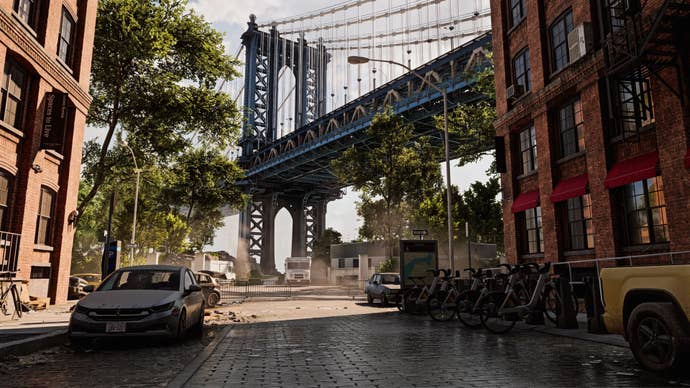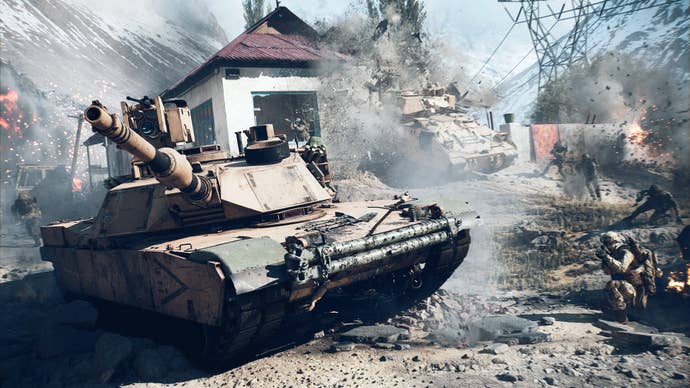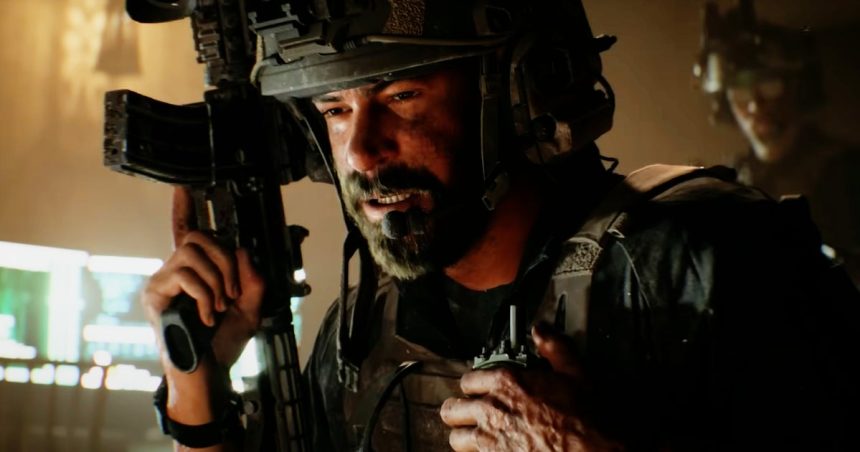I am not the first journalist to accuse Battlefield 6 of not reading the room. The new Battlefield single-player story explores the proximity that NATO will collapse, sleazy private military companies fill a vacuum of power, and that some form of gunned army in America must fight to reunite old allies under stars and stripes. The campaign includes a New York invasion, with a street fight against the Balaclava Huff villains of “Pax Almata” in the shadow of the Brooklyn Bridge. Many brave helicopters abandon their lives in the process, and Bob Dylan’s soul flies off every flagpole.
In Endless Mode, Moises Taveras commented on the stupidity of pitching this particular f-talk, but the current US administration is making a fuss about quitting NATO unless other members increase their defense spending. Freelance critic Autumn Wright suggests that Battlefield 6 is the latest repetition of “the power fantasy of the victims” dating back to modern war 2. Bullet Points Monthly co-editor Yussef Cole elaborates over the possibility of invasion owes something to buried guilt about the extent to which the US’s overseas intervention is. Let’s continue with that kink/guilt observation in a simple and flashy way. Imagine a shooter on the battlefield or a shooter with Call of Duty resources yelling out the quiet parts and turning America into a villain.
Check out YouTube
Time is ripe for games about other countries you can claim and cooperate to declare some kind of liberation war. Here is a possible story. For some time, an inconsistent hype movement seized the White House by abuse of the hardened US election system, and now heavily issues his clergy and supports and slaughter genocides in other countries while deploying troops against peaceful protesters. For all freedom-loving Americans, it depends on the heroic alliance of Ireland and Switzerland, Mauritius and Swiss, to land in Washington and defeat the tyrants. Of course, that would be the climax – many foreign airbases to get through first.
From a calm, raw figure perspective, the US military is the ideal antagonist of a real-world first-person shooter on the scale of the battlefield. Look at all the hardware the Pentagon has at its disposal. Missile silos in everyone’s backyard. Submarines and airlines are like wandering near a distant coastline, monitoring shipping costs. A bunkerbuster bomb that can touch the Earth’s core. Absolute most cinematic tactical headgear, all padding and antennas, wraparound shades. Helicopters that seem to be outdated. The world’s second largest military by personnel.
The irony of PMC’s Battlefield 6 choice as a villain is that a significant proportion of real-life PMCs are made up of former members of the US military. I think the developers will work on exploring that, but the vibe of the trailer is a more red-blooded rage at this latest eruption of the wrong kind of capitalism.

We already know that the US is a rich repository of potential FPS levels. Just as the Battlefield 6 trailers make planes, this is a country made up of iconic locations like the Grand Canyon and Disneyland. It was promoted all over the world after the film and was actually explored in many big-budget FPS campaigns, but generally from an advocate point of view it is a flashy background across the continent.
Contemplating the idea of a massively hit military FP with the US military as an enemy is interestingly offensive in that it reveals the structural dependence of the massively hit shooter on the concept of Earth war machinery. The rapid changes in time and place found in the Call of Duty and Battlefield campaigns are based on the infrastructure that allows them to synchronize their parts for thousands of miles. Only superpowers capable of maintaining the rough surrealists of shootouts can get new weapons and gadgets every minute, calling for airstrikes as if they were opening a bag of chips.
I’m writing all of this and I’m sure it sounds edgy in a challenging and counterproductive way. It’s also hypocritical on many levels given that I am British and I have a substantial portion of the guilt of the abuser, whether it’s our old empire or talking about the Iraq war. But it’s not coming from where you neglect hot takerships at all. My feelings now are more tired on behalf of my state colleagues, measuring the delusions of Battlefield 6’s invasion of government brutal treatment of immigrants, and feeling anxious about embracing my country’s prerequisites.

He also feels pathological curiosity about commercial practicality. Call of Duty sincerely believes that it can create a bank from sequels that clearly pitch the enemy as the enemy. Specifically, it is a Black Ops sub-synthesis. From the Vietnamese period to the cyborg stage, Black Opus is ahead of any rival to suggest that the US Army could be a sociopath state. Part of this is that black ops are widely forced by nihilism that has sprouted in wetland environments rejected by the military world order, as surveillance has been stopped and everything is permitted, as the Assassin’s beliefs say. There’s nothing meaningful here, not particularly your boss.
You can sell anti-American blockbuster shooter games as spec ops: a line-style playable critique of surgical interventions. But perhaps the way to empower the chart is to lean on the inevitable scandalized reaction, take lessons from Black Sabbath and others, and paint yourself as an infamous figure.
(TagStoTRASSLATE) Battlefield 6 (T) Call of Duty: Black Ops 7 (T) Activision (T) Electronic Arts (T) PC (T) PS5 (T) Shooting Game (T) Square Enix (T) Treyarch (T) Xbox Series X/S








